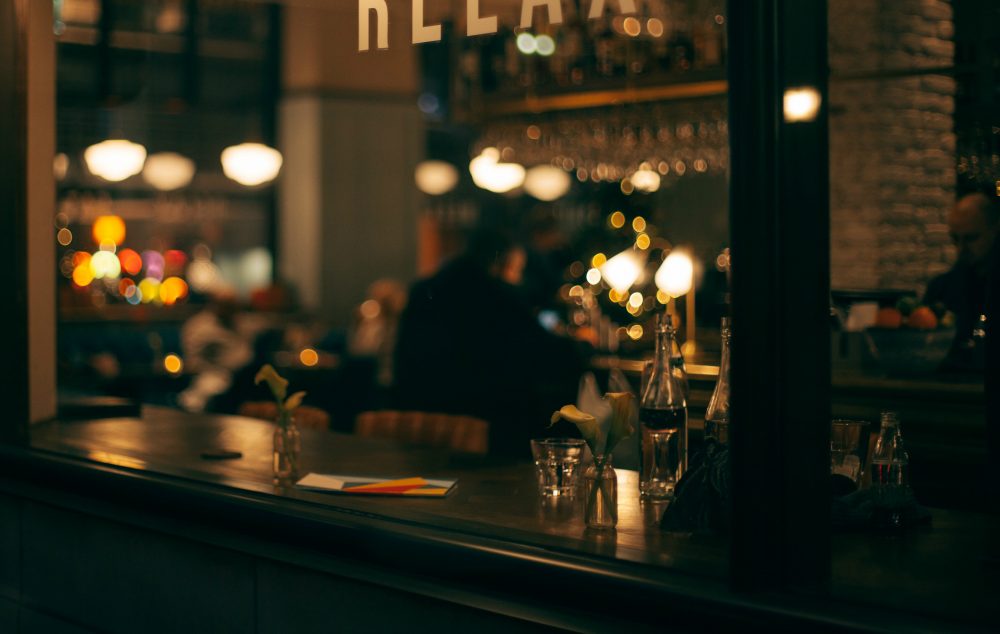Advertisement
Traveling Abroad Without A Cell Phone Turns A Stranger Into A Friend

COMMENTARY
With our vacation almost here, my husband, Bob, grabs his pen and happily crosses another day off our calendar. I should be excited, too. But I lie awake at night, questioning our decision to travel without a cell phone – borne of frugality combined with a shared technology phobia that we keep from all but our closest friends.
Nonetheless, on a Wednesday night in June we board our flight to Stockholm. I wedge myself into the narrow seat. Suddenly, I remember another tight squeeze, 30 years earlier. I am waiting on a Beijing street. A bus pulls over. Trapped in a throng of impatient passengers shoving to get on the already packed coach, I feel the color drain from my face. A woman on the bus catches my eye. She sticks her hand out the open door. I grab it, and she pulls me inside. Jammed into the crowded bus, I smile at the woman who helped me, and I recall a lesson from a college professor. “Xenia is the ancient Greek concept of generosity to strangers far from home," he said.
The Scandinavian flight attendant reminds us to buckle our seat belts. Ten hours later we pry ourselves out of the seats and stagger on a train to Stockholm. Dragging our suitcases up the escalator, we join a stream of commuters exiting the metro.
We walk along several commercial streets, lined with shops and restaurants. A misty drizzle turns into a steady downpour. After half an hour, we trudge, wet and exhausted, into the lobby of our Airbnb apartment building. I turn the knob of the apartment's front door, which Alex, the host, had promised to leave open. It’s locked tight. As I bang on the unyielding door, my heart sinks.
We slump against the corridor wall. Bob drapes a comforting arm around my shoulder. Almost in tears, I push him away, angry at myself for traveling without a phone. Shouldn’t I have anticipated a problem like this?
“We’ll figure something out,” he says.
I feel a strong temptation to plead with Bob, far friendlier than me, to ask a passerby for help. But before I got on the plane to Sweden I reminded myself, as I do before every trip, “Just talk to people. What do you have to lose?”
Technology increases a trip’s predictability but helps eliminate the unexpected events that make a journey exciting.
When I see a man stroll out of his apartment, I ask if he speaks English. When he nods, I explain our plight: the locked door, no cell phone. He takes the paper with our host’s phone number and calls him, leaving a message.
Perhaps it was the damp hair plastered on my forehead or the awkward tic in my eye, but Johan, our new friend, offers to help. He deposits our suitcases in his apartment and tells us to follow him to meet his friend, Dmitri. Bob and I trail behind Johan on a busy street, past the H&M store and a cute café, until he finally turns into a brightly lit pub. The three of us squeeze into the booth where Dmitri waits.
Johan buys a round of beer and cracks a joke about Swedes that makes us all laugh. We commiserate about our kids. Sitting in the pub, I feel like I am nestled in front of a hearth, enjoying Johan and Dmitri's warmth.
Greta, Alex’s girlfriend, turns up with the key, explaining that her boyfriend rushed out for a flight to France and accidentally locked the door of his flat behind him. She scrunches up beside me. The five of us chuckle about travel mishaps. Finally, she walks us to our apartment and unlocks the door.
Two weeks later we return home, and I call my 25-year-old son. When I describe my panic at being locked out of our apartment in Stockholm, he’s blunt. “It’s the 21st century. Get over that technology phobia. Spring for a smartphone.”
“You’re right,” I agree.
But after I hang up, I recall how my stomach joyfully fluttered in the middle of a travel adventure. Do I want to join the ranks of 21st-century travelers? Technology increases a trip’s predictability but helps eliminate the unexpected events that make a journey exciting.
If I had a phone, I wouldn’t have experienced one of the highlights of our trip: that afternoon with new friends in a cozy Swedish pub. Some Americans are more fearful of foreigners. But on that day, when we were the strangers far from home, Johan’s generosity gave me the chance to rediscover xenia.
